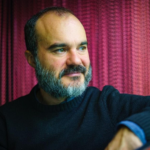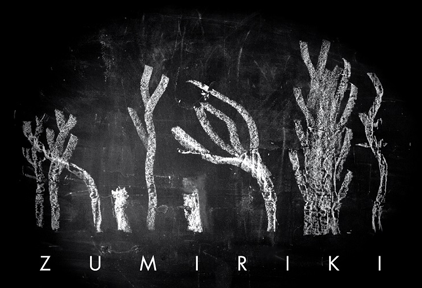ZUMIRIKI
DOCUMENTARY
Showing: APRIL 24
SYNOPSIS:
Is it possible to travel twice to the same memory? The filmmaker built a cabin on an isolated riverbank, just opposite his childhood island, which had disappeared under the water after the construction of a dam. The goal was to go back to that place, which had become invisible. Only the trees of the island where he’d played stood firm in the middle of the water, like the masts of a broken toy, so the air was the only space left, the only vestige of the past to be conquered.
This film is a diary of a castaway in memories; four months of a Walden experience in a lost paradise with two hens, a small vegetable garden and a clock that stopped forever at 11:36 and 23 seconds.
2019, directed by Oskar Alegria 122 minutes, color, in Euskara with English subtitles.
Showing at the Basque Cultural Center, April 24th @ 7:30 p.m.
reviews:
“Zumiriki is the most undefinable film in the whole festival,” claimed Alberto Barbera, director of the Mostra’s Orizzonti section of the Venice International Film Festival. “Each scene brings a new surprising idea.”
“A feast for the soul, an anthropology of time, a masterpiece.” – Alan Berliner
“This movie is unlike any other; like a Robinson Crusoe of memory.” – Eric Pauwels
“Bold and masterful. This film shows us that cinema is the home of childhood.” – Ignacio Aguero

About the Director
Oskar Alegria Suescun (Pamplona, Spain, 1973) is a film director, programmer, and professor. He has worked as a journalist on “El viajero,” produced by El País, and on the TV news programs produced by Canal Plus y CNN+. He has coordinated the cultural program Los cinco sentidos (Telemadrid) and the literature program Sautrela (Euskal Telebista), where he also directed the cooking documentaries Sukalde Maisuak: Maestros de la cocina, comprising five films about Arzak, Subijana, Berasategi, Aduriz, and Arbelaitz, respectively.
Alegria Suescun’s debut feature-length film, La casa Emak Bakia [The Search for Emak Bakia], (2012), about the quest to find the house on the Basque-French coast where Man Ray shot a film of the same name, was shown at 70 international festivals and received 15 prizes, including the Maysles Brothers Award for Best Documentary Film at the Denver Film Festival and the Navaja de Buñuel prize for Best Spanish Film, awarded by the TV show “Versión Española” and the Spanish Society of Authors and Publishers.
For the past four years, he has been the artistic director of the Punto de Vista International Documentary Film Festival of Navarra, where he also coordinated and published the books TIME about the relationship between time and cinema, and Oteiza al margen, about the notes and screenplays of Basque filmmaker Jorge Oteiza. He has served as a jury member for the film festivals of San Sebastián, Karlovy Vary, RIDM in Montreal, Cinéma du Réel in Paris, and New Horizons in Wroclaw, Poland.
Oskar Alegria has also directred Gure Oroitzapenak (2018), Zumiriki (2019), Zinzindurrunkarratz (2023).
Director’S STATEMENT
My father used to film the traditions and landscapes of his small village. One day I noticed him filming the plants and birds that were disappearing and at the same time he was logging the words for them in old Basque language with the soundtrack. Then I learned that if words die, birds and plants also vanish. Filming was then to save our ancient world. Filming to live twice. Filming where we hear ourselves as children.

